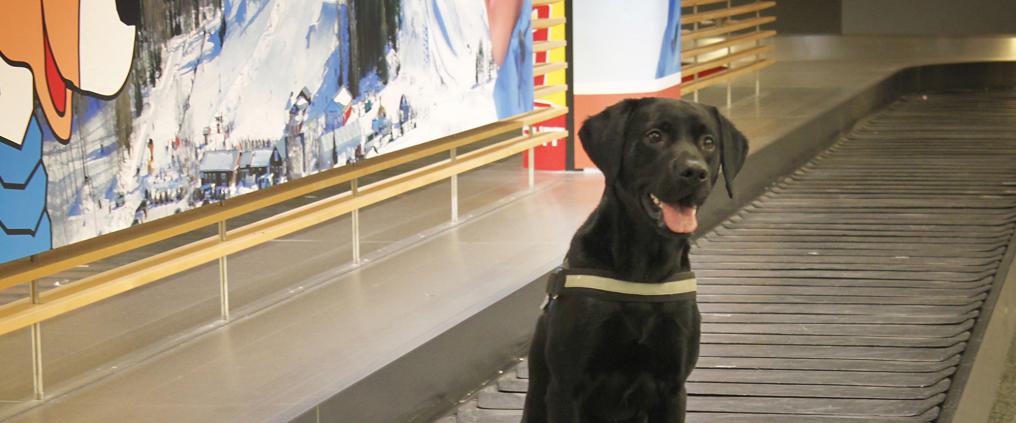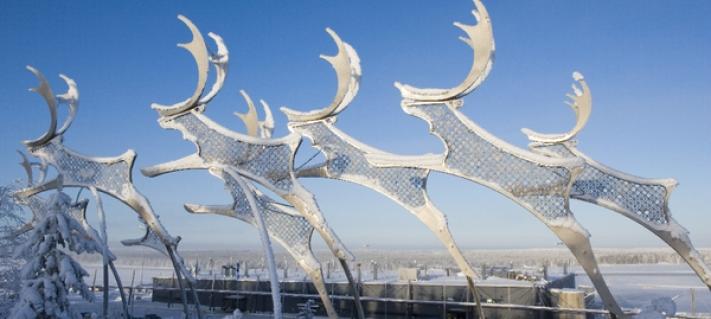There are a total of seven dogs who work for Helsinki Airport Customs. Massi is a so called combination dog - that is, he looks for both drugs and money. The other dogs only sniff for drugs.
Massi is the first Customs money dog. However, he does have a colleague named Poppe at the Vaalimaa border crossing station. The money dog is a Customs pilot project, and a part of the efforts to prevent the grey economy and to reveal money laundering. When entering or leaving the EU area, people are required to report any cash they carry in excess of EUR 10,000. Money dogs are trained to react to large sums of money.
“Massi has already made many findings, also several findings worth more than EUR 10,000. The beginning has been promising. I am extremely pleased with the results,” says customs inspector Timo Pasanen, the handler of Massi.
At the airport since a puppy
Customs carefully chooses the dogs to be trained since there are specific requirements for the dogs in order for them to succeed in the work.
“What is required first and foremost of Customs dogs is courage. The dog cannot be afraid of loud noises or large crowds. Also, it needs hunting instincts since that is utilised in the work,” Pasanen says.
Massi has been in training to be a Customs dog since he was a puppy. At first, Massi walked together with an older Customs dog Nipa at the airport to familiarise himself with the working environment. The training for sniffing drugs and money takes about 3–4 months.
“When the dog has worked for about a year, it is starting to be ready. That is when the dog has formed routines,” Pasanen says.
Massi is now 18 months old, and he has worked officially as a money dog since last summer. When not at work, he lives at Pasanen's home and lives the normal life of a dog. Therefore, Massi spends nearly all of his time with his master, both at work and at home.
“In practice, I see the dog more than I see my family,” Pasanen laughs.
Even if the airport is probably one of the most stressful work places for a dog, Massi enjoys his work. For him, the work is just play. The working day is as long as that of the customs inspector, that is about 10–12 hours, but during the day he has time to take a break in his own box in the Customs' dog room and to run around the woods near the airport.



